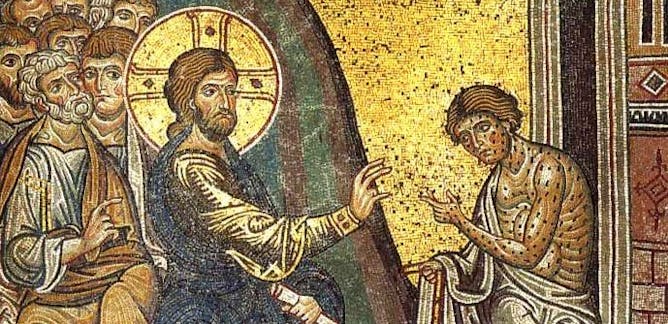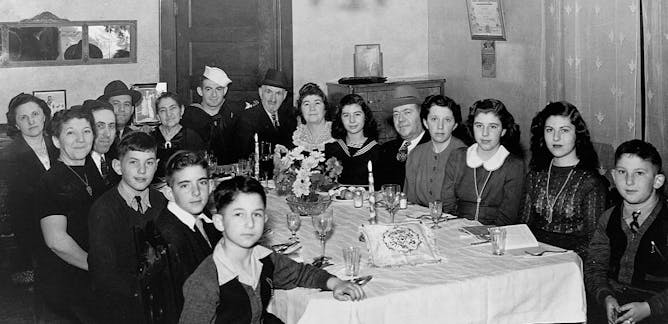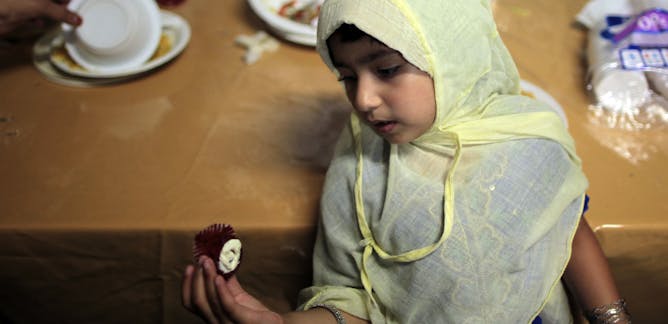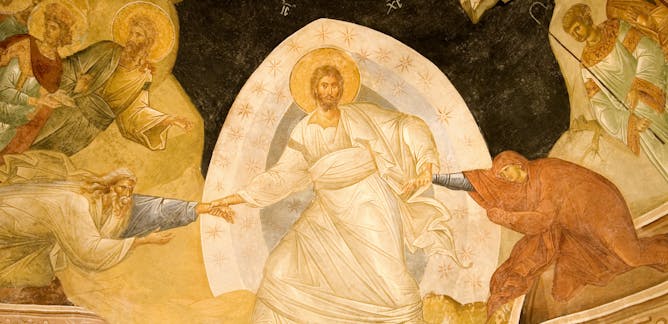|
This is a time when some of the world’s major religions – Islam, Judaism and Christianity – are observing important events on their respective religious calendars. Millions of Canadians this weekend are either observing Passover, Easter or the middle of the holy month of Ramadan. As someone who doesn’t know much about religion, I enjoy reading stories from The Conversation network produced by religion and history scholars who do such a great job of explaining the traditions and practices of all faiths.
Feasts and the important part that food plays are a common element of most religious celebrations. So even if you’re not observing a religious ceremony this weekend, I’ve assembled a selection of explanatory stories about religion and faith from across The Conversation network – and also a great piece on why chocolate sometimes gets that white stuff on it.
Our newsroom is taking a long weekend, so we won’t be back in your Inbox until Tuesday.
|
Weekend Reads: Understanding religion
|

Nathan Kilah, University of Tasmania
It’s totally fine to eat chocolate with a white film on the surface. But what is it, how did it get there, and how can it be avoided?
| |

Elizabeth Westrupp, Deakin University
You can still tell the truth without ruining everyone’s Easter. Here are some tips.
|

Matthew Thiessen, McMaster University
Easter and Passover begin on the same weekend this year. This is an opportunity to revisit misconceptions about Jesus’s ministry and to address anti-Jewish uses of Christian scripture.
| |

Kerri Steinberg, Otis College of Art and Design
A collaboration between advertiser Joseph Jacobs and the famous coffee company produced the classic U.S. haggadah. The book sets out the ceremony for the Seder meal.
|

Mohammad Hassan Khalil, Michigan State University
Muslims observe a month-long fast for the holy month of Ramadan. A scholar explains the religious observance and its spiritual significance.
| |

Mehmet Ozalp, Charles Sturt University
Ramadan, a holy month of fasting in Islam, begins this weekend, and asks Muslims to give thanks to God for the sustenance the Earth provides.
|

Jason Oliver Evans, University of Virginia
Christians have engaged in passionate debates over the meaning of the resurrection. Baptists may be distinct in that they believe an external religious authority cannot enforce views on such matters.
| |

Tok Thompson, USC Dornsife College of Letters, Arts and Sciences
A folklorist explains the prehistoric origins of the mythical Easter Bunny and why this longstanding cultural symbol keeps returning each spring.
|

Henry Bial, University of Kansas
Andrew Lloyd Webber and Tim Rice’s famous musical has long inspired controversy for how it depicts the story of Jesus of Nazareth.
| |

Seb Coxon, UCL
Religion has been a laughing matter since the middle ages.
|
|
|

Gemma Ware, The Conversation; Daniel Merino, The Conversation
Why is Indonesia planning to build a new capital called Nusantara? Listen to The Conversation Weekly podcast.
|